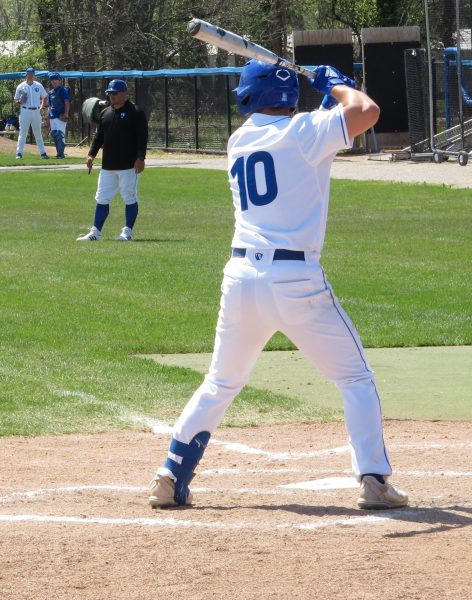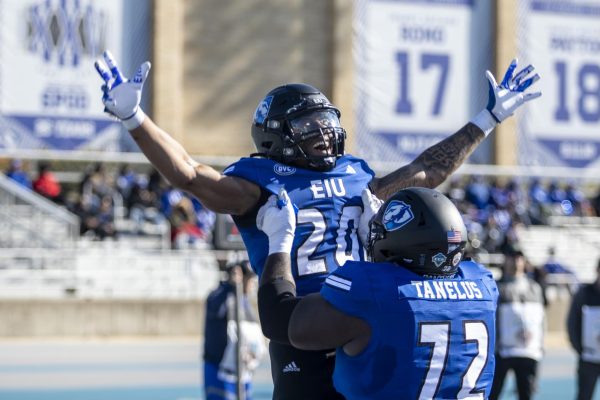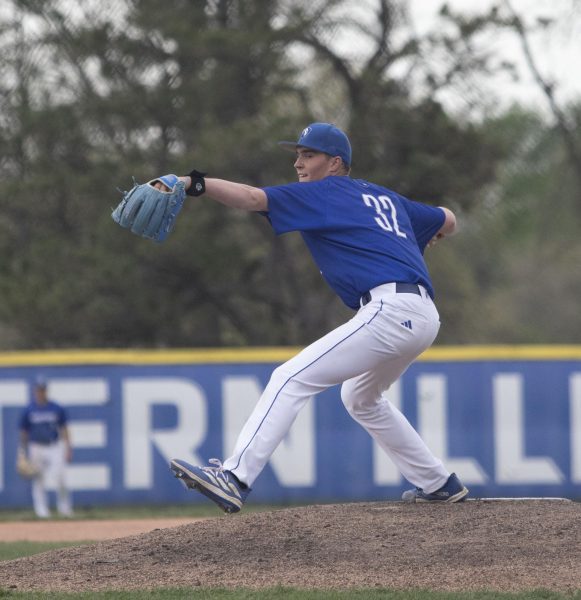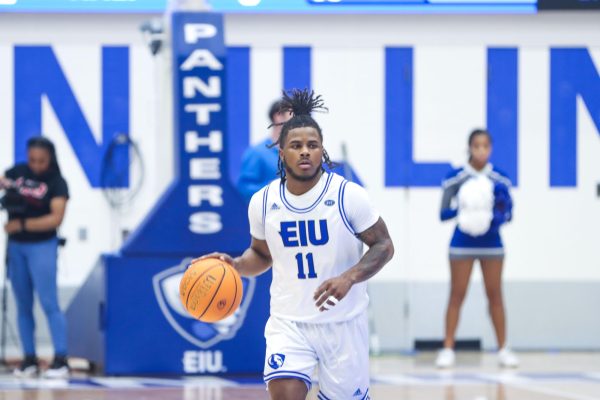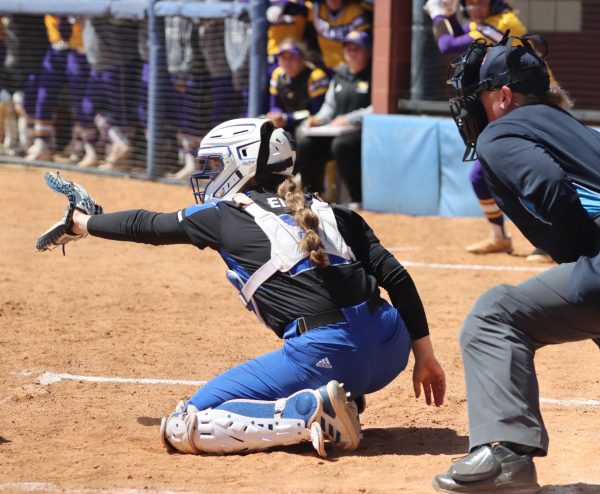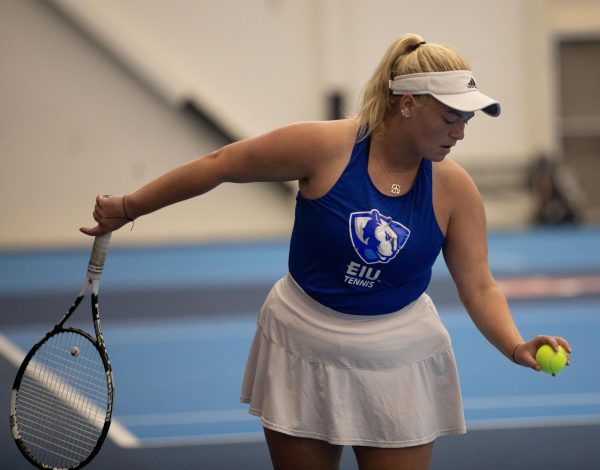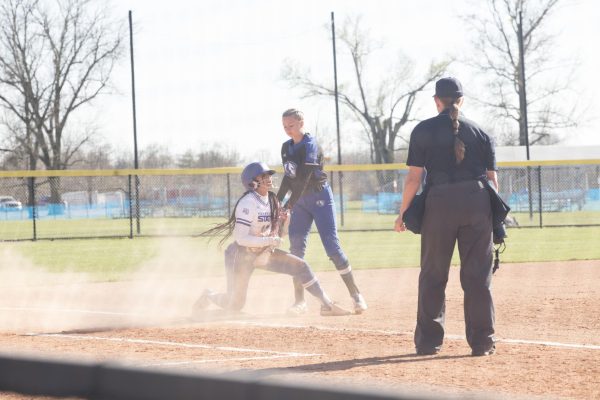Playing matchmaker on the court is not so easy
Panther tennis standout C.J. Weber has played on some horrendous doubles teams.
Those teams he played on couldn’t return, volley or serve and it was his fault – at least that’s what his partner said.
“There was just so much tension,” Weber said of a team he played on in junior tennis. “There was a lot of pressure and for me, that’s the last thing I want in a doubles partner.”
Little pressure exists between Weber, a senior, and his doubles mate Brandon Blankenbaker. The pair owns the second-best doubles record in the Ohio Valley Conference (9-5) and has beaten some tough competition, including duos from Marquette and Wright State.
The lead doubles team’s play has sparked much of the Panther men’s team’s success this year. In college play, three doubles matches are played. The team winning at least two of those matches earns a team point. Singles matches are each worth a point and are played after doubles.
“We’ve been on both sides of that doubles point this year,” Panther tennis coach Brian Holzgrafe said. “And when we win it, it really makes a big difference.”
Holzgrafe pointed to a men’s 5-2 win over league power Morehead State as an example of when the doubles point made the difference.
“You look at the score and that doesn’t seem right,” Holzgrafe said. “But their play in the doubles matches carried over to the singles.”
Picking the right doubles partners ranks among the hardest decisions a tennis coach makes – something that has haunted Holzgrafe.
He said the fault for bad doubles play lies on him as much as it does the players.
“You try to identify a players’ strengths and put him or her together with someone who has different strengths,” Holzgrafe said. “But really it’s all trial and error. God knows I’ve screwed up with that a lot of times.”
For the women’s team, Holzgrafe made near-perfect doubles picks. The Panthers carry a 33-17 record into this weekend’s league tourney. Freshman Jill Wirtz, who is 11-4 in doubles play, said a strong doubles team needs a strong morale base.
“If one person gets down, they both get down,” Wirtz said. “They just keep on losing. They just feel like they can’t work at all together.”
Both Wirtz’s partners this season come from overseas. Senior Jana Matouskova of Czech Republic and Ivana Milosevic of Yugoslavia both speak fluent tennis.
“Our games go well together because we both play to the top of the net,” Wirtz said. “We’ve done well because we’ve all put forth our best effort.”
Freshman Colin Priestner (6-9 in doubles play) has struggled to find the right doubles partner. The Canadian said the language of tennis sometimes includes many subtle non-verbal cues.
“You’ve got to know where your partner’s going to be moving and he’s got to know where you are,” Priestner said. “That’s really hard to figure out from someone you’ve never played with before.”
Weber said the key lies in the mental aspect of the game.
“I think (Blankenbaker and I) have gotten to know each other better over the years,” Weber said. “We feel each other’s styles out better. We know who’s going to take which ball. It’s something that just happened naturally.”




































